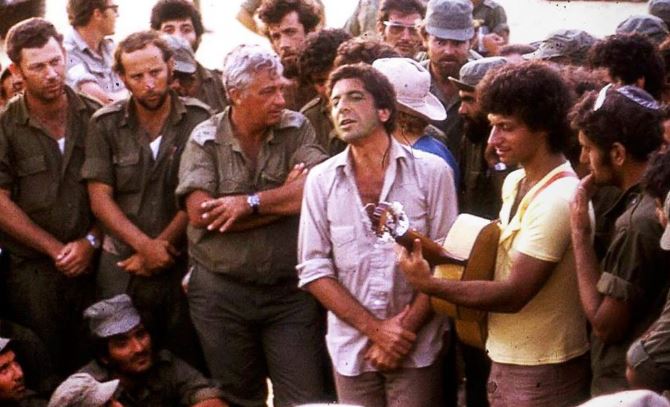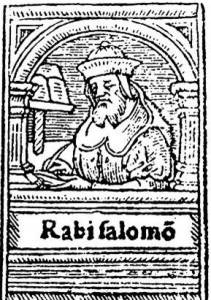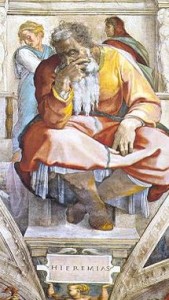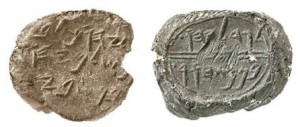Leonard Norman Eliezer Cohen (1934-2016) was born in Montreal, the grandson of a Lithuanian rabbi and a Polish immigrant who founded the Canadian Jewish Congress. Cohen grew up very close to his Jewish community, and attended Montreal’s Jewish Herzliah High School, where he was first inspired to take up poetry by a teacher. While studying at McGill University, he published his first set of award-winning poems. His second book of poetry found even more success, and was seen as an important work in Canadian literature, with one critic calling Cohen “the best young poet in English Canada.” Cohen moved to a small island off the coast of Greece and wrote prolifically, publishing several more books of poetry and novels. One of his later books – a Literary Award winner – was inspired by the Hebrew Bible and consisted of 50 poems that Cohen called “prayers”. Meanwhile, Cohen started recording music in the 1960s as poetry did not bring the income he hoped for. His first album was a big hit in the US and UK. It was his seventh album that had his most famous song, “Hallelujah”, which Cohen went through some 80 drafts writing, and “banging his head on the floor”. The song was inspired by various Biblical scenes, including the stories of Samson and Delilah, and King David and Batsheva. It would be covered by over 200 artists in dozens of languages, and become the subject of a whole book and BBC documentary. In 1994, Cohen entered a period of five years of seclusion during which time he was ordained a Zen Buddhist monk. However, he never abandoned his Jewish roots, and said, “I’m not looking for a new religion. I’m quite happy with the old one, with Judaism.” Cohen was known to keep Shabbat throughout his career, even while on tour. In his 2009 concert in Tel-Aviv, Cohen spoke Hebrew and ended the concert with Birkat Cohanim, the priestly blessing. During the Yom Kippur War, Cohen went to Israel to volunteer at a kibbutz before going to the front lines himself to entertain Israeli soldiers, saying he will “stop Egypt’s bullets”. In his 1972 Jerusalem concert he was so emotional that he had to walk off stage at one point. The crowd started singing to bring him back and a teary-eyed Cohen felt like “the entire audience turned into one Jew”. All in all, Cohen produced 15 albums (the last of which was released just three weeks ago), 13 poetry books, and two novels. He won a plethora of awards – including multiple Junos and Grammys, the Order of Canada, and induction into the Rock and Roll Hall of Fame – and inspired countless musicians, poets, and artists. He has been hailed as one of the most influential songwriters and greatest musicians of all time. Sadly, Cohen passed away earlier this week.
Words of the Week
There is a crack in everything. That’s how the light gets in.
– Leonard Cohen





